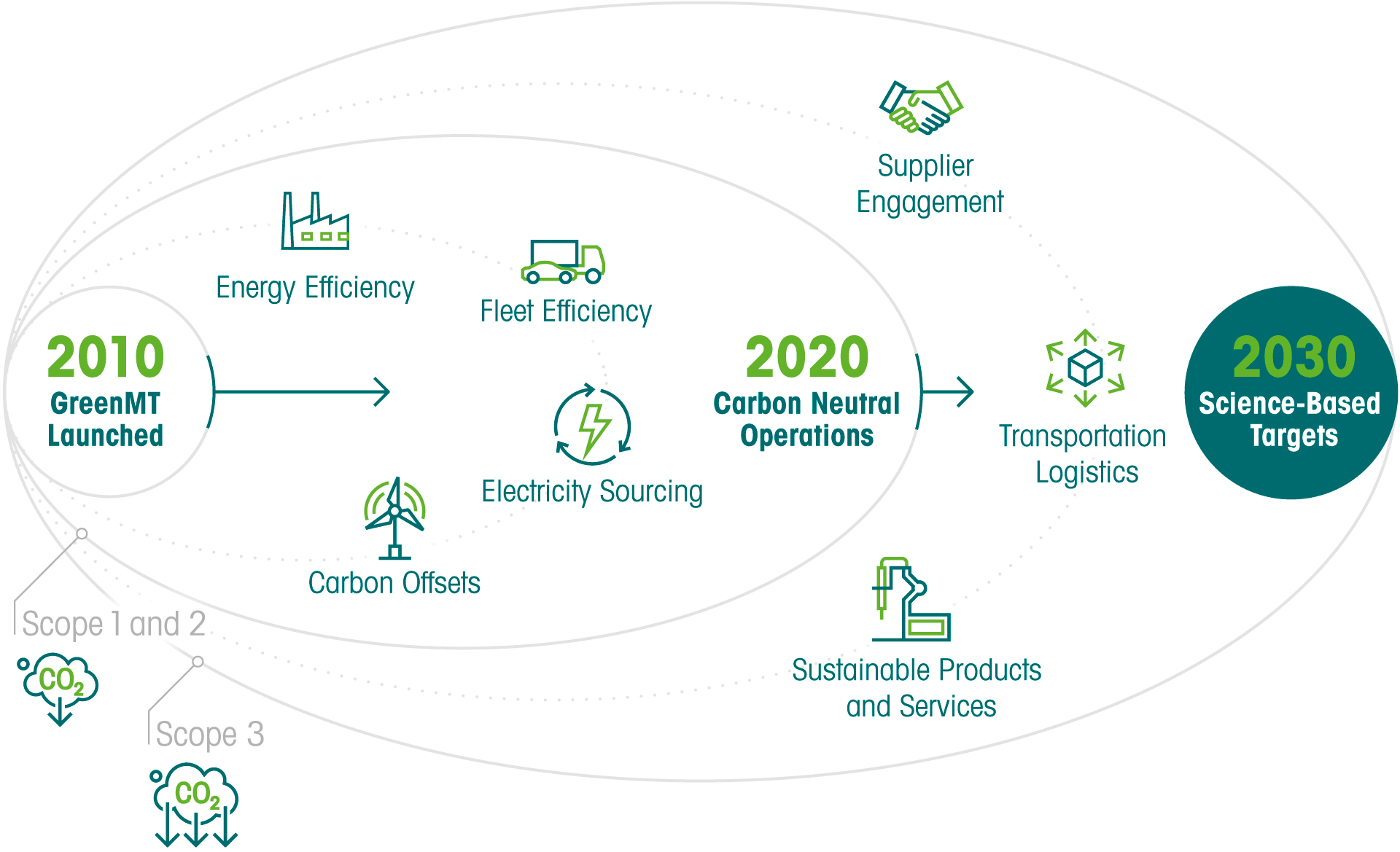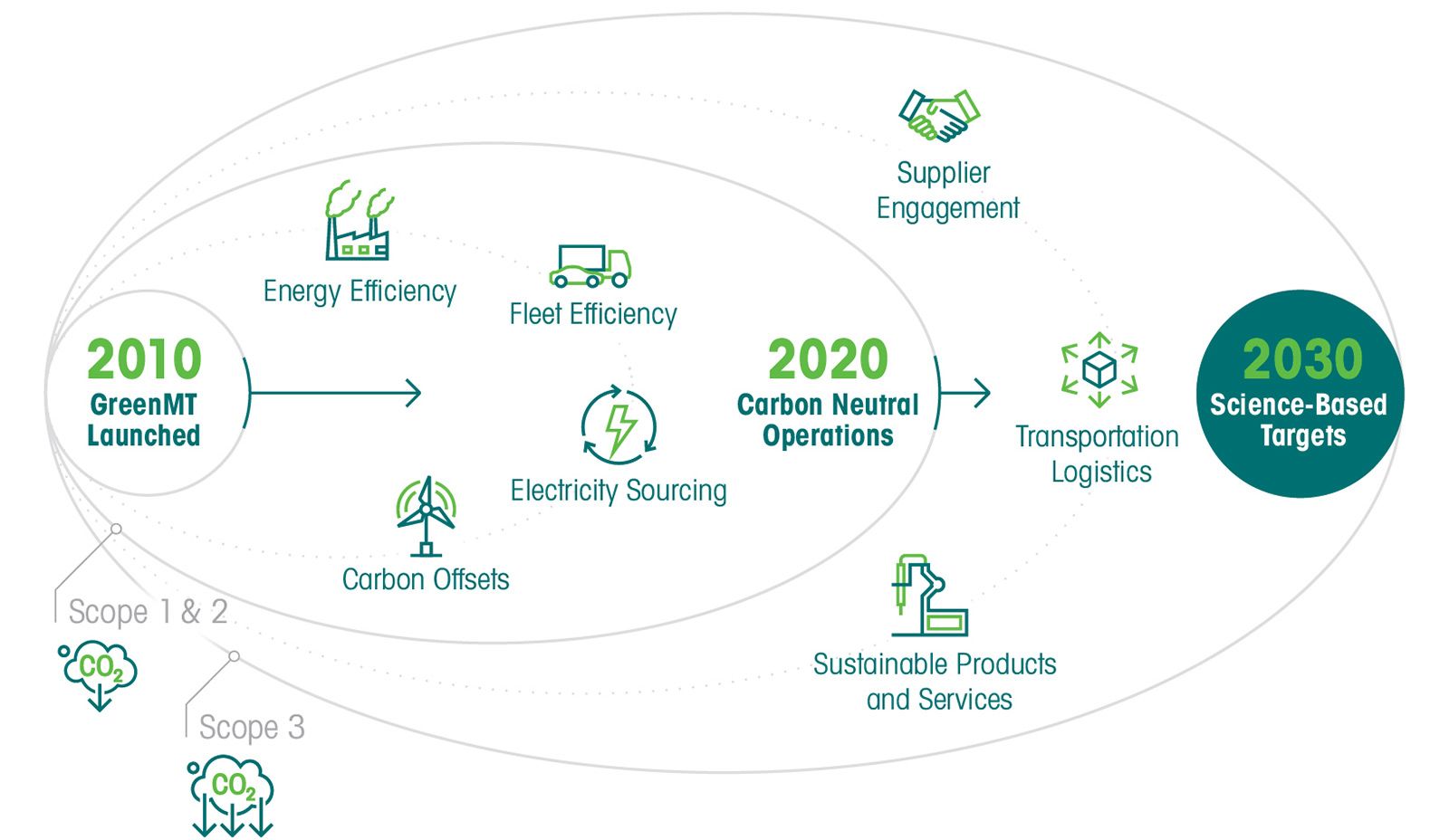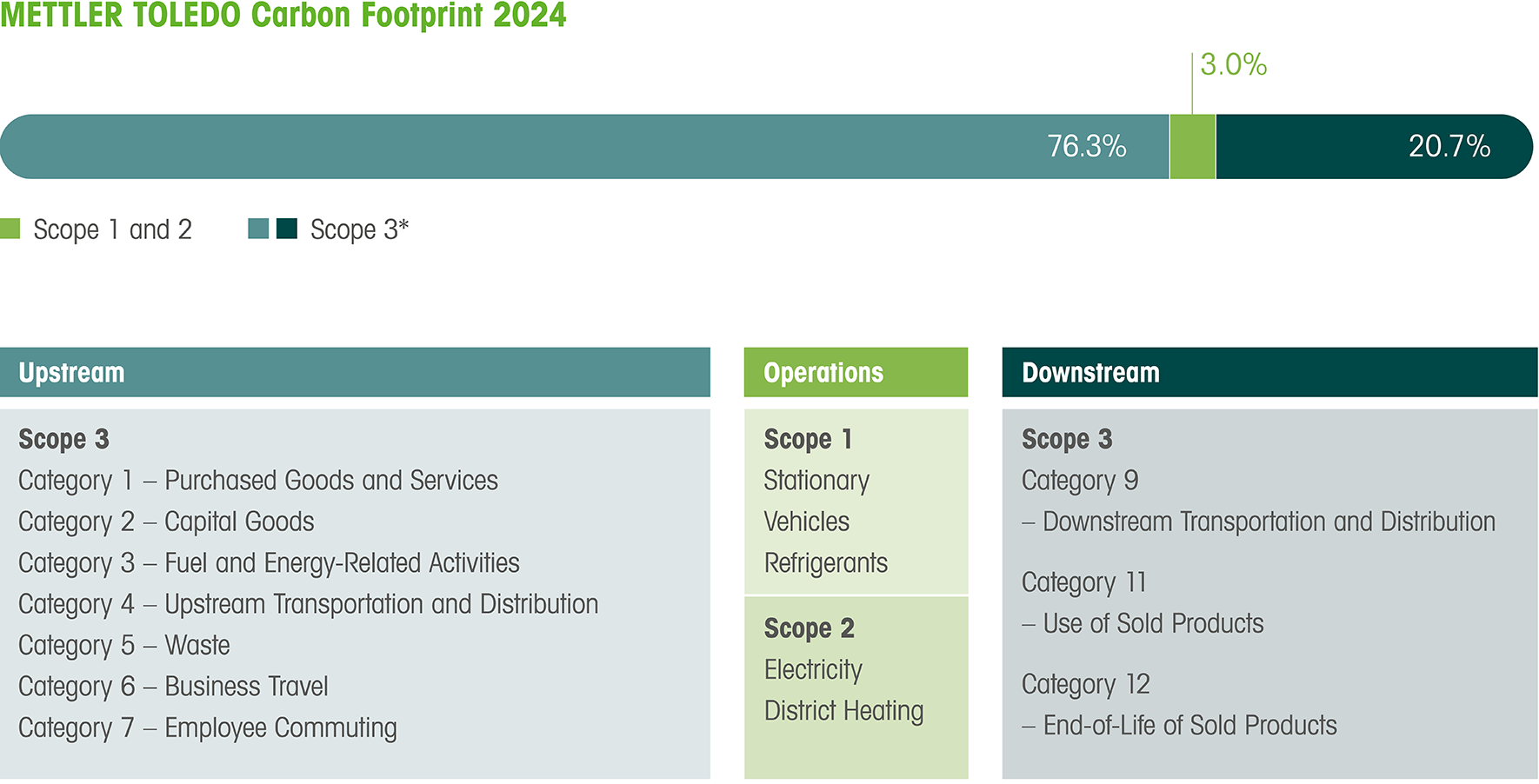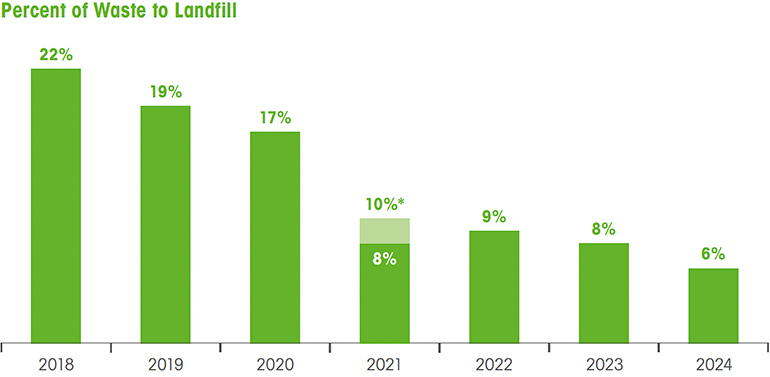GreenMT Goal
Reduce Energy Consumption
and Carbon Emissions
Targets and KPIs
Carbon Neutral (Scope 1 and 2)
100% Renewable Electricity
Near-term science-based targets:
- Reduce absolute Scope 1 and 2 emissions 70% by 2030 (from 2018 base year)
- Reduce absolute Scope 3 GHG emissions 30% by 2030 (from 2019 base year)
Status
Achieved
Achieved
−54%
+5%






